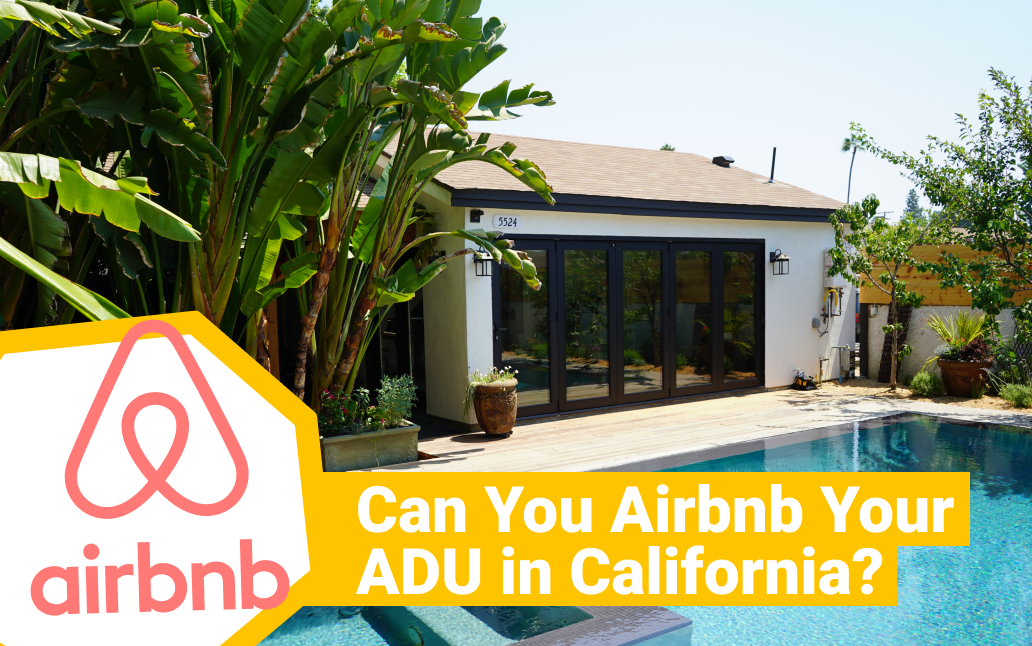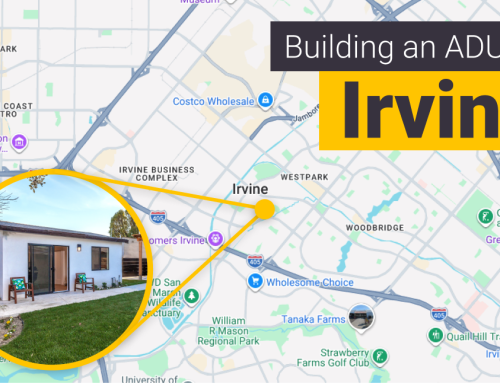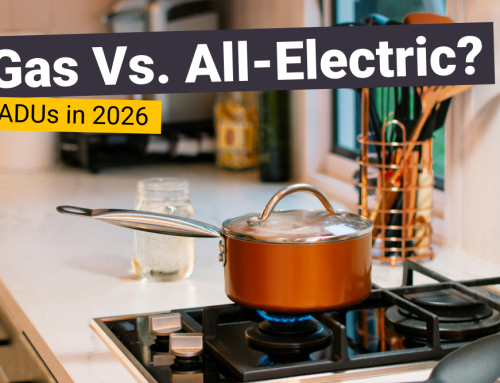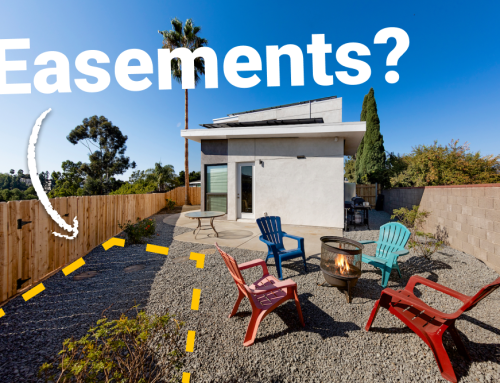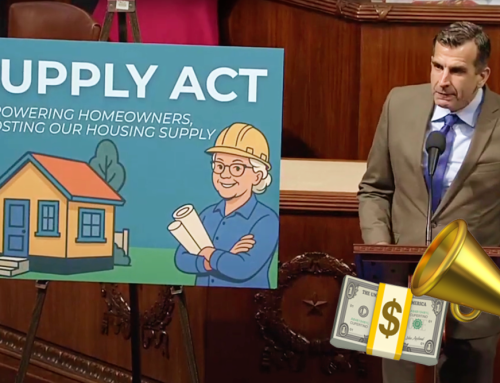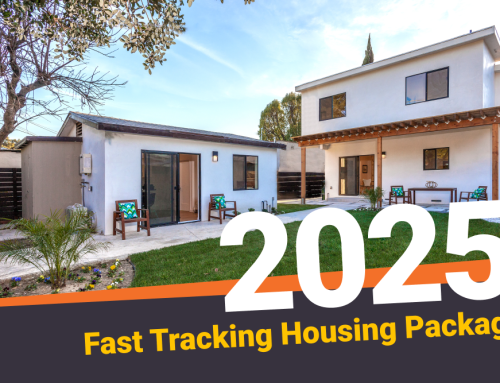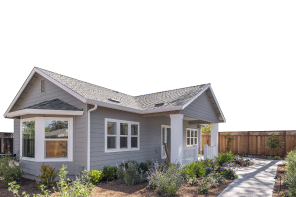Accessory Dwelling Units (ADUs) seem to be the perfect opportunity to cash in on Airbnb and VRBO; they’re private, the perfect size, and you don’t even have to leave your property to manage them. But before you start furnishing your backyard cottage for guests, there’s one major question to answer: Can you legally rent out your ADU as a short-term rental in California?
The answer isn’t as straightforward as you might think. While the state has embraced ADUs as a housing solution, short-term rental rules are set at the local level—meaning what’s allowed in Los Angeles might be banned in San Jose. And even if it’s legal in your city, you may still need to navigate permits, registration fees, and design considerations that affect your ability to attract guests (and avoid complaints).
Understanding these rules before you build—or list—could save you from costly surprises down the road.
Can I list my ADU on Airbnb?
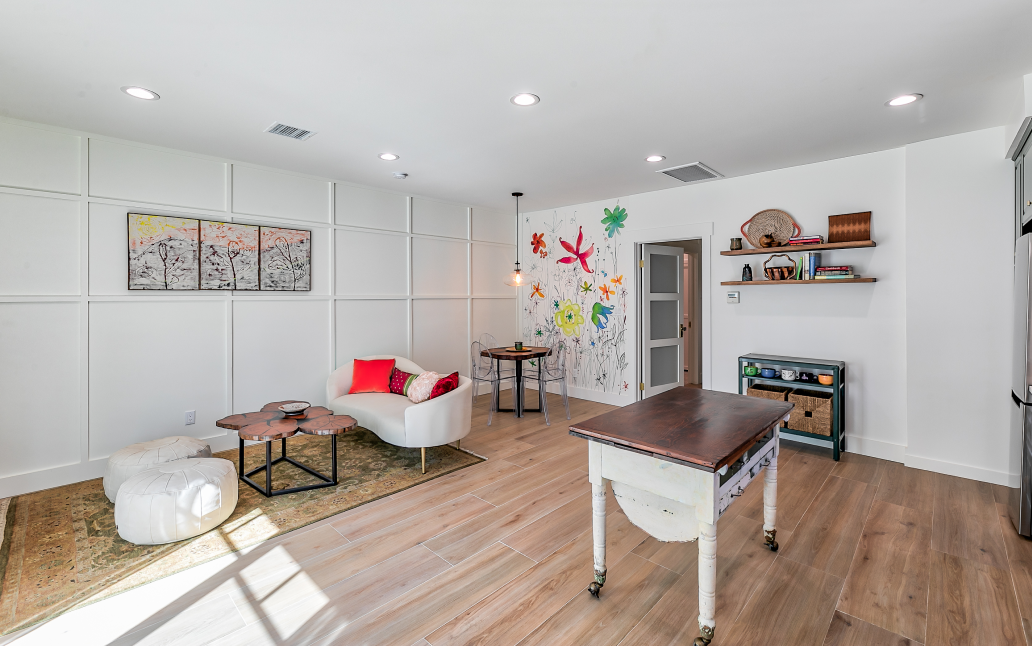
Short-term rental rules for ADUs aren’t statewide—they depend on your local city regulations. So, before you begin planning, first make sure you live in an area that allows it.
Vacation rentals are often defined as less than 30-day terms, and many cities have strict rules—or outright bans—on renting out ADUs for this length of time. Some municipalities only allow short-term rentals in the primary residence, not in detached units like ADUs. Others may permit it with restrictions, such as requiring the owner to live on-site, limiting the number of rental nights per year, or mandating specific permits and fees.
Cities that have banned using ADUs as short-term rentals include San Diego, Oakland, Inglewood, and Stanton.
Before you assume you can list your ADU on Airbnb, check your local ordinances and reach out to your city’s planning or zoning department. A few minutes of research can save you from building an income-generating unit that’s legally restricted from doing just that.
But, if you live in a city that bans vacation rentals for ADUs, you’re in luck. There are alternatives that still allow you to generate income and maintain flexibility without breaking any laws.
Alternatives to Airbnb for Your ADU
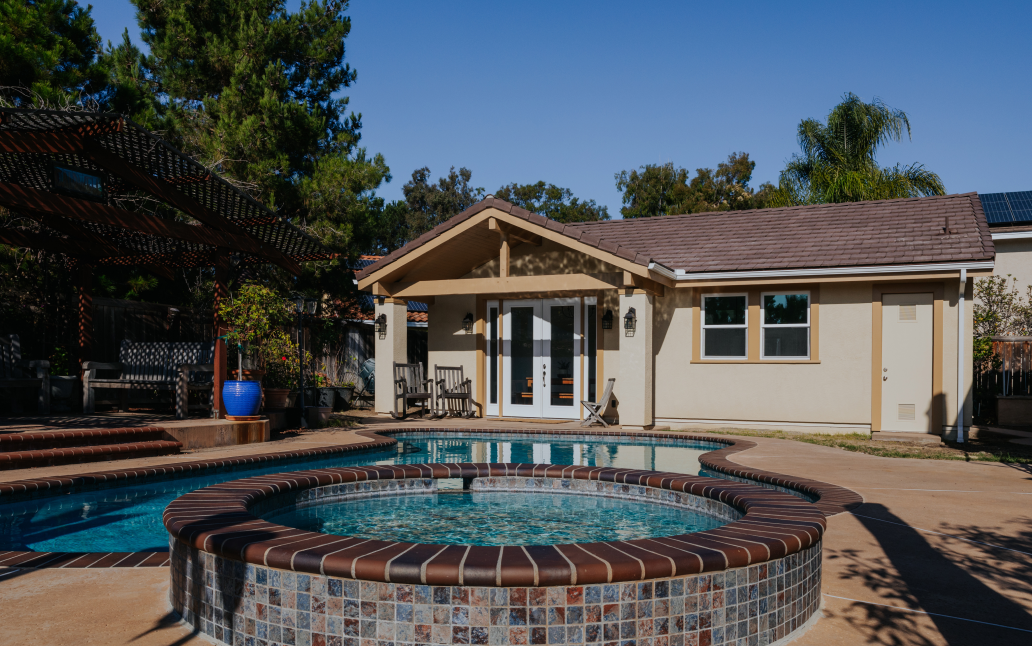
A lot of homeowners know Airbnb for its vacation accommodations, but the site is also popular for travelers looking for mid-term stays.
A mid-term stay is anywhere from one to 11 months.
These longer stays can provide steady income with fewer turnovers, less wear and tear, and often less stringent local regulations compared to short-term rentals. Plus, it’s easy to block out dates for when you might need to use the ADU for personal use like during the holidays when you have family visiting.
If your city prohibits short-term vacation rentals in ADUs, consider listing your unit for mid-term or long-term rentals on platforms like Airbnb (using its “Monthly Stays” option), Furnished Finder, or Zillow Rentals. These options attract traveling professionals, students, or people relocating, offering a reliable way to monetize your ADU without running afoul of local rules.
How Much Can You Make Listing Your ADU on Airbnb?
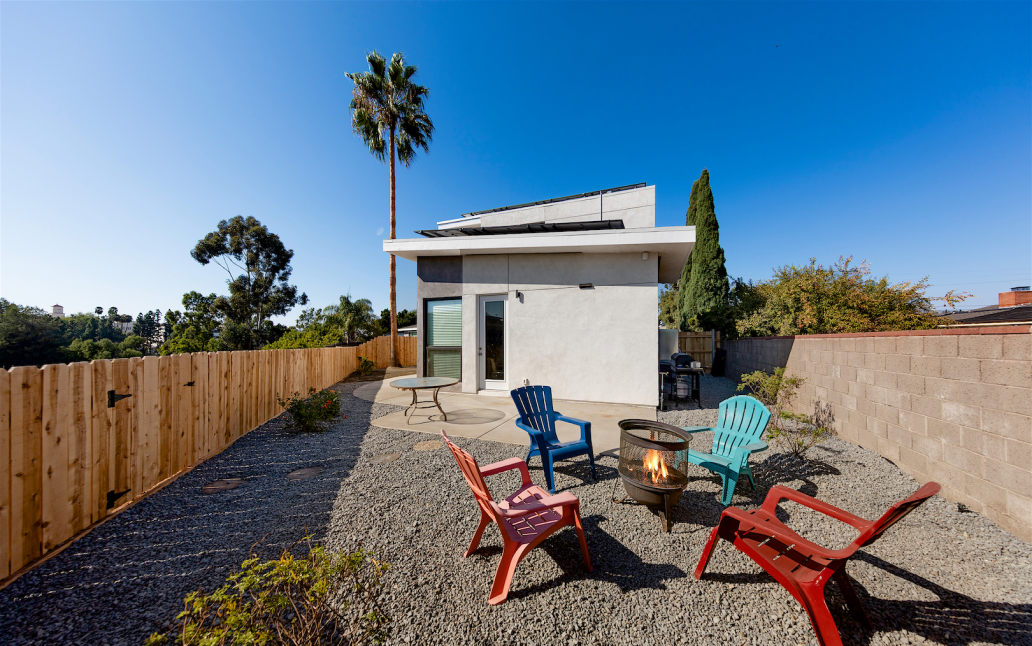
How much you can make per month listing your ADU on Airbnb depends on several factors like location, size, amenities, and occupancy rates. Here’s a rough idea:
- In high-demand California cities like Los Angeles or San Francisco, ADUs can earn anywhere from $2,000 to $5,000+ per month if rented consistently.
- Average nightly rates for a well-furnished ADU typically range between $100 to $250, depending on location and quality.
- Assuming an occupancy rate of 60-80%, you could expect roughly 18 to 24 booked nights per month.
So, for example:
- $150 per night × 20 nights = $3,000/month
- $200 per night × 22 nights = $4,400/month
And these are real numbers! Check out this homeowner in Sacramento that pulled the ultimate real estate hack and now nets $5,000 on his property with an ADU.
Keep in mind that expenses like cleaning fees, utilities, Airbnb service fees (usually ~3%), maintenance, and local taxes will reduce your net income.
Pros and Cons of Airbnb’ing Your ADU
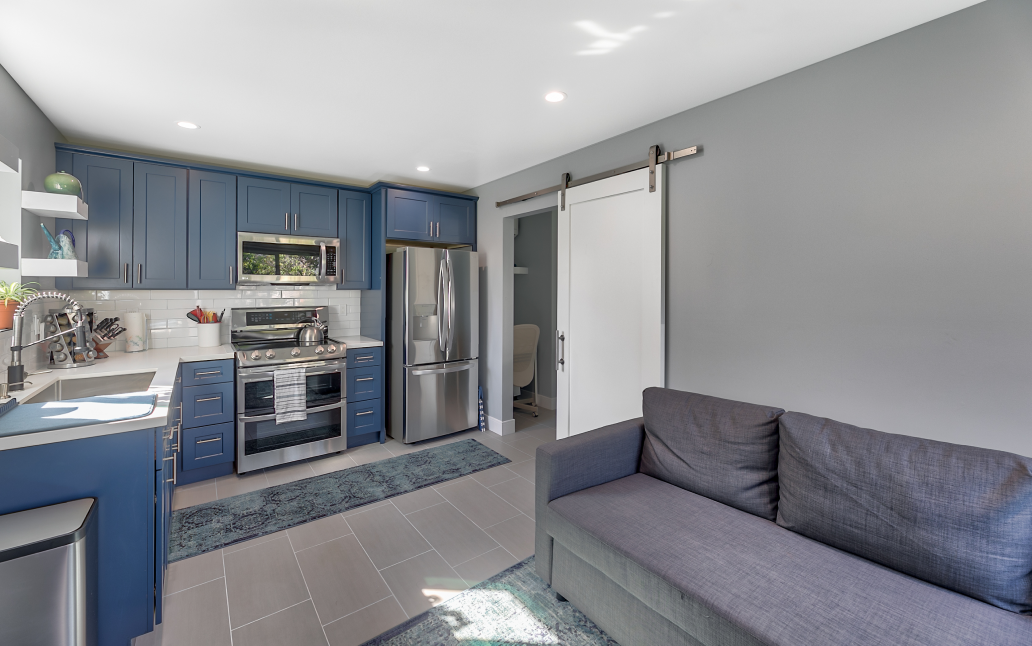
We’ll admit, being an Airbnb host isn’t for everyone. Many are lured in by the idea of easy extra income without giving much consideration to the stipulations that come with managing a short-term rental. Here are some things to consider before starting.
Pros
- Higher rental income: You can often charge a premium compared to long-term rentals.
- Flexibility: Block out dates whenever you need the space for yourself or family.
- Meet new people: Hosting can be a fun way to connect with travelers from around the world.
- Control over your property: You maintain full ownership and can adjust your listing as needed.
Cons
- High maintenance: Frequent guest turnover means more cleaning, repairs, and upkeep.
- Higher expenses: Costs add up for utilities, cleaning services, restocking supplies, and platform fees.
- Must be fully furnished: To attract bookings, your ADU needs furniture.
- Increased wear and tear: More foot traffic means faster depreciation of appliances, flooring, and furniture.
- Regulatory hurdles: You must comply with local laws, permits, and tax requirements to avoid penalties.
- Potential neighborhood issues: Noise complaints or parking problems can strain relationships with neighbors.
Insurance & Liability Considerations
Airbnb offers Host Liability Insurance and Host Damage Protection as part of their AirCover program. Host Liability provides up to $1 million in protection against third-party claims of bodily injury or property damage related to your listing. Host Damage provides up to $3 million for damage caused by a guest to your ADU. This coverage helps give hosts peace of mind when renting out their ADUs, but it’s important to note that it may not cover all scenarios.
These can include a dedicated short-term rental insurance policy, which typically covers lost income and liability beyond what Airbnb provides. You might also want to check with your homeowners insurance provider to understand how renting your ADU affects your current coverage and whether you need to purchase extra protection.
Airbnb Friendly ADU Designs
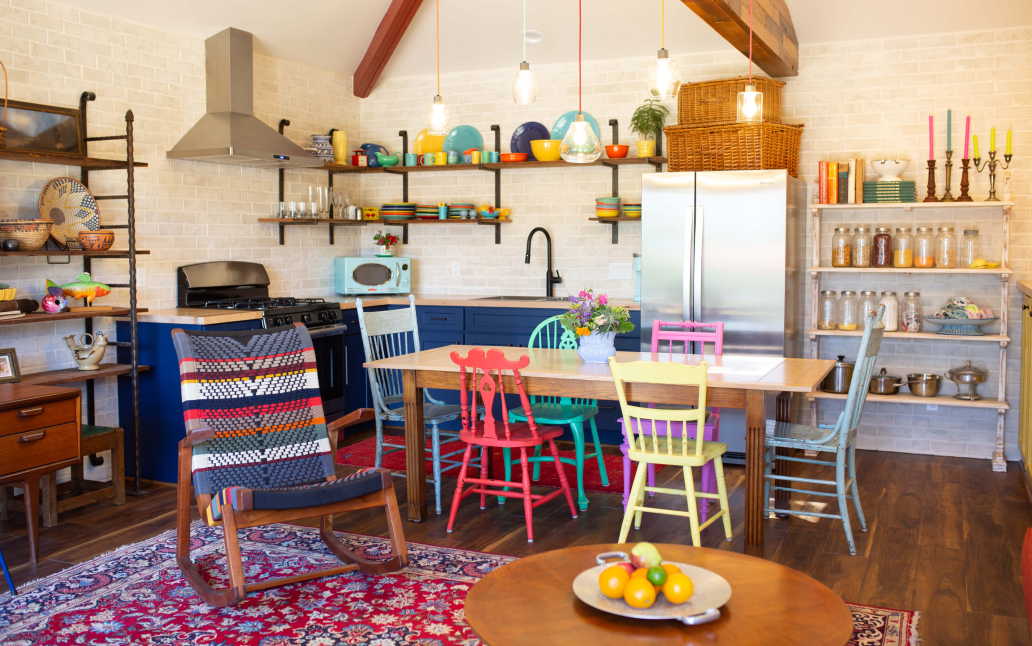
The great thing about listing your ADU on Airbnb is you can really have fun with the design! Vacationers love an Insta-worthy space to unwind after a day of exploring.
But, if you prefer a more simple style, there’s nothing wrong with using clean lines and neutral colors throughout your ADU. In fact, it’ll make it a whole lot easier to transform depending on what you plan to use your ADU for in the future.
It all depends on your preference.
However, what’s most important is to design for the present and the future. Your plan may be Airbnb now, but ten years from now you may find you’ll need the ADU for something else like housing a family member or even yourself if you decide to downsize. With that in mind, make sure to incorporate features you find important for long-term comfort and convenience.
Here are some features to consider.
Washer and Dryer
Even short-term guests appreciate the convenience of doing laundry on-site, especially those staying for a week or more. A stacked washer-dryer unit or a compact combo model can make your listing more appealing and future-proof your ADU for long-term use.
Private Outdoor Space
A small patio, balcony, or garden area gives guests a place to relax and adds perceived value to your listing. In the long run, it also provides a peaceful retreat for family members or yourself if the ADU becomes a permanent residence.
Durable Flooring
If you’re going to splurge on one thing, it should be flooring!
Opt for materials that can withstand frequent use and are easy to clean, like luxury vinyl plank or tile. These hold up well against wear and tear, spills, and changes in occupancy without constant maintenance.
Storage
Clever storage solutions—like under-bed drawers, built-in shelving, and wall-mounted hooks—help keep the space tidy and functional for short-term guests. They’ll be just as helpful later on if the ADU becomes a more permanent home.
Ready to Build Your Own Airbnb-Friendly ADU?
An ADU designed thoughtfully can serve as the perfect vacation rental now and easily adapt to long-term living down the line. At Maxable, we help homeowners create flexible, well-designed spaces by connecting them with vetted designers and contractors.
Book a free call with our team to start planning an ADU that fits your lifestyle—now and in the future.

